Study main points and key terms from chapters 13-15 of the AP American Pagent
| Andrew Jackson had the most votes in the election, but because of the electoral college, it ended up being a tie. Henry Clay (Speaker of the House) had to break the tie. Clay picked John Adams, which later Adams appointed Clay as Secretary of State. There was a rumor that Adams and Clay had a bargain that if Adams was picked, Clay would be appointed as Sect. of State. However, Jackson ended up being elected as president, due to the corrupt bargaining of Clay and Adams. | 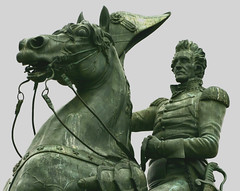 | |
| Andrew Jackson (known as the Father of the Democratic Party) was elected as the president, and he was known as the "people's leader" and that he was "like one of them". He was the first president from "the West". Jackson helped expand mass democracy. Jackson was part of what was called "the Spoils System", where a president puts his supporteres in all the government's departments. | 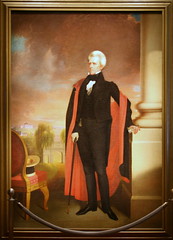 | |
| 1828 - Also called Tariff of 1828, it raised the tariff on imported manufactured goods. The tariff protected the North but harmed the South; South said that the tariff was economically discriminatory and unconstitutional because it violated state's rights. It passed because New England favored high tariffs. | 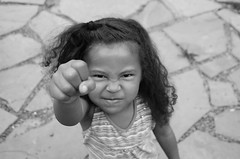 | |
| Removal of the Southeast Indians to Indian Territory. 1838 Cherokee (4,000 of 12,000 Cherokee died on Trail). Trail of tears |  | |
| erupted in 1832 when Daniel Webster and Henry Clay presented Congress with a bill to renew the Bank's charter. Clay pushed to renew the charter in 1832 to make it an issue for the election of that year. He felt that if Jackson signed off on it, then Jackson would alienate the people of the West who hated the Bank. If Jackson vetoed it, then he would alienate the wealthy class of the East who supported the Bank. Clay did not account for the fact that the wealthy class was now a minority. Jackson vetoed the bill calling the Bank unconstitutional. | 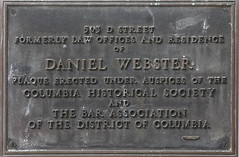 | |
| A new political party started emerging in 1834, the Whigs. Named after the British Whigs; started by Henry Clay and John C. Calhoun. | 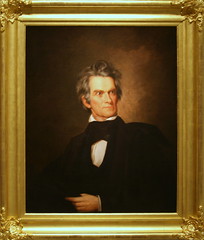 | |
| When Jackson was president, many state banks received government money that had been withdrawn from the Bank of the U.S. These banks issued paper money and financed wild speculation, especially in federal lands. Jackson issued the Specie Circular to force the payment for federal lands with gold or silver. Many state banks collapsed as a result. A panic ensued (1837). Bank of the U.S. failed, cotton prices fell, businesses went bankrupt, and there was widespread unemployment and distress. Effects: A) the South hated the Bank because it cause foreclosures in the West. B) Specie Circular. C) Failed wheat crop | ||
| Part of Spain, then part of Mexico; helped in 1821 Mexican Independence; Austin Steven (i.e. Austin, Texas) decided people can settle there if they are Catholic; Tension between Texans and Mexico, causing Texas to want to be part of the US, but changes their mind due to the slave laws. Texas becomes independent country. |  | |
| Election between Van Buren and Harrison. Harrison is elected. Effects: A) Triumph of mass democracy. B) Election marks 2 diverse national political parties in America | 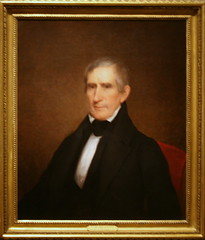 | |
| Pioneers were moving westward because of want of land and fortune. The life as a pioneer was very grim, as they were stricken with diseases and loneliness. |  | |
| By the mid-1800s, the population in the US was doubling every 25 years. By 1860, there were 33 states and the US was the 4th most populated country in the western world. More European immigrants came to America because Europe seemed to be "running out of room." In the 1840s, many of the Irish immigrated to America because of crop (mostly potato) failure, and the Germans also came because of crop failure. | 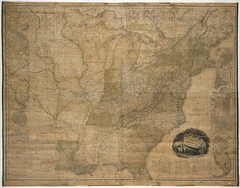 | |
| Farm women and girls had an important place in the pre-industrial economy, spinning yarn, weaving cloth, and making candles, soap, butter, and cheese. However, women were forbidden to form unions and they had few opportunities to share dissatisfactions over their harsh working conditions. | 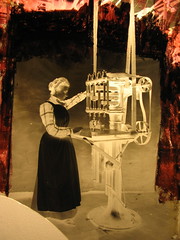 | |
| The Lancaster Turnpike was a hard-surfaced highway from Philadelphia to Lancaster, and drivers had to pay a toll to use it. In 1811, the federal government began to construct the National Road, or Cumberland Road, and was completed in 1852. Robert Fulton invented the first steamboat, which helped bind the West and South. The first railroad appeared in 1828, and railroads helped the development of the economy. They were opposed at first because of safety and they were taking away money from the Erie Canal investors. The Erie Canal's creation was put into action by the New York govenor, DeWitt Clinton. This canal connected the Great Lakes with the Hudson River in 1825. |  | |
| Industrial factories grew popular, and highly impacted the American economy. Key items included machinery, sewing machines, telegraphs, and incorporations. Children were commonly used as factory workers, and most factory employees were known as "Wage Slaves". |  | |
| The starting of "Interchangable Parts", which means factories could make guns using machines, and they could all be alike. This started assembly lines. Samuel Slater immigrated to America, and helped the economy by memorizing blueprints for mills and rebuilt mills in the US. Another key term was the making of patents, or copyrighting. Also, there were limited liablilty companies (l.l.c.) and corporations. | 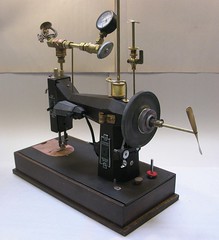 | |
| Thomas Paine promoted the doctrines of Deism. Deists relied on scienerather than the Bible and they denied the divinity of Christ. They did believe in a Supreme Being who had created a univere and endowed human beings with a capacity for moral behavior. Unitartianism was formed, and was based off of Deism. Unitarians believed God existed in only one person. The Second Great Awakening came in 1800, and two key figures were Peter Cartwright (a traveling preacher who converted thousands to Christianity) and Charles Grandison Finney (a great revivalst preacher), as well as women. | 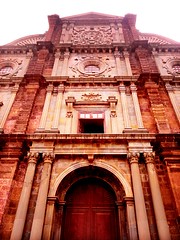 | |
| Joseph Smith formed the "Church...Saints" (Mormons) in 1830 when he deciphered the Book of Mormon from some golden plates given to him by an angel; led the Mormons to Illinois. After Smith was killed in 1844, Brigham Young led the Mormons to Utah to avoid persecution. |  | |
| Tax-supported public education came between 1825 and 1850. Americans realized their children needed to be educated, and Horace Mann campaigned for a better schooling system. The University of Virginia was founded by Thomas Jefferson in 1795, and was the first state-supported university. Emma Willard helped bring education to women at the secondary level in the 1820s. | 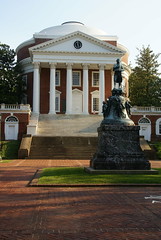 | |
| States gradually abolished debtors' prisons due to public demand. Criminal codes in the states were being softened. The number of capital offenses was being reduced. The idea that prisons should reform as well as punish arose. Dorothy Dix- traveled the country, visiting different asylums; released a report on insanity and asylums; her protests resulted in improved conditions for the mentally ill. In 1828, the American Peace Society was formed. It was led by William Ladd. | 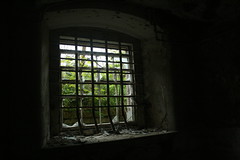 | |
| The problem of drinking was found in women, clergymen, and members of Congress. The American Temperance Society was formed in 1826. Its crusaders persuaded drinkers to stop drinking. The problem of drinking tore down the family structure. Neal S. Dow- thought that alcohol should be removed by legislation; "Father of Prohibition"; supported the Maine Law of 1851 which banned the manufacture and sale of liquor in Maine. (The country banned the sale of alcohol with the 18th amendment in 1918.) |  | |
| In the early 19th century, the role of women was to stay at home and be subordinate to her husband. Women could not vote and when married, she could not retain her property. Women actually started to avoid marriage. Gender differences were emphasized in the 19th century because the market economy was separating women and men into distinct economic roles. Feminists met at Seneca Falls, New York in a Woman's Rights Convention in 1848 to rewrite the Declaration of Independence to include women. | 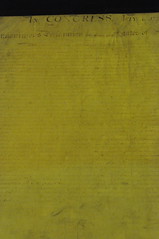 |

